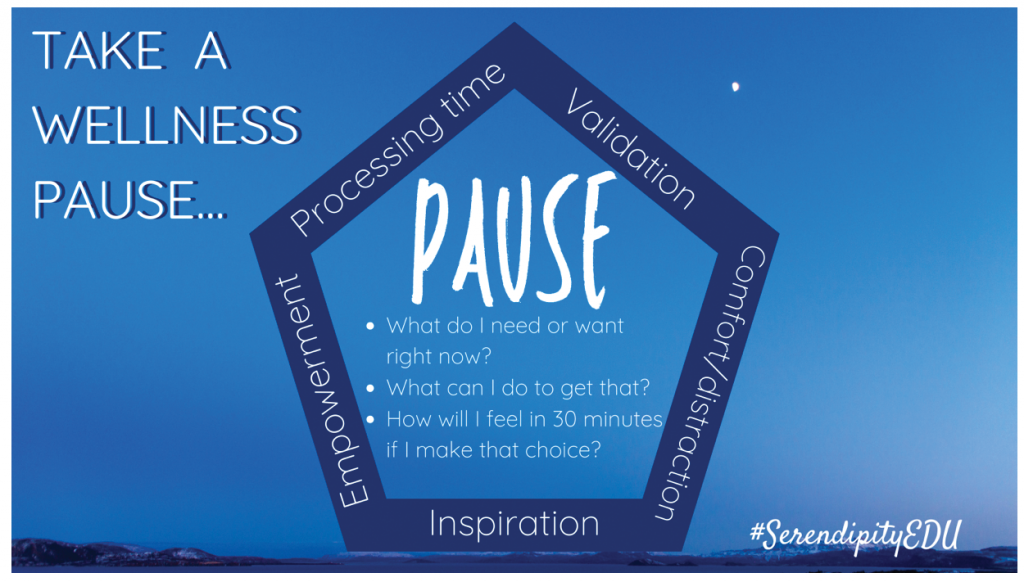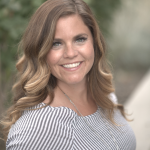The focus on self-care over the past few years has left many of us inspired to take better care of ourselves, which is exactly the point. That’s wonderful. Some, however, have felt like the talk around “self-care” has missed the mark a bit and the pressure to “do self-care” has inadvertently created anxiety and guilt. To others, it has felt like a very privileged concept. As they are struggling to put food on the table, take care of their families, balance work and home responsibilities, they are supposed to drop everything and take a bubble bath? It just doesn’t mesh with reality, and adding pressure and stress to our lives is the last thing the idea of self-care was intended to do.
Would shifting our conversations from self-care to personal wellness bridge that gap and encompass more of the intended concept of putting the oxygen mask on ourselves first? Rather than adding self-care to our daily or weekly to-do list, what if we focus on listening to our hearts, our bodies, and our spirits more carefully and then acting upon that information? Taking care of ourselves in the midst of our daily grind could help us take better care of ourselves as well as those around us.
“If you feel ‘burnout’ setting in, if you feel demoralized and exhausted, it is best, for the sake of everyone, to withdraw and restore yourself.” -Dalai Lama
Take a Wellness Pause
The reality is that it doesn’t take a global pandemic or crisis to feel like our emotions are determined by what is happening in the world around us. Stress and challenges have always been and will always be part of our daily lives. Sometimes we feel like our job is to avoid negative emotions and in that endeavor we will always fail. Rather than setting ourselves up for failure, let’s build in practices that will help us manage negative emotions, so they don’t manage us. Personal wellness encompasses exercise, eating right, getting enough sleep, and it also encompasses being a good self-listener to understand what our own emotions are telling us. One way to practice listening to ourselves is to take a wellness pause.
When we feel angry, sad, overwhelmed, jealous or other negative emotions, we are feeling that way for a reason. Our body, mind, heart or spirit is trying to tell us something. There is no guilt or shame in having negative emotions, we all experience them because we are supposed to. They were created with a purpose. Here is a process that may help us work through the negative emotions and move toward personal wellness.
Take a Wellness Pause by stopping what you are doing and taking a moment to breathe. Take as long as you need until you are ready to answer the three questions.
What do I need or want right now? This first question may be the most important. In this moment, what do you want or need? Do you need your feelings validated? Do you need empowerment? Do you need processing time? Do you need comfort or distraction? Or do you need inspiration?
As you can see in the graphic below, these answers are listed on the sides of the PAUSE pentagon. They are overlapping, and you may need or want more than one. Sometimes we just need someone to validate our feelings, to acknowledge that what we are going through is hard and that we are not crazy to feel that way. Sometimes we need to just sit in our negative feelings and process them. Sometimes we need someone to inspire us to snap out of the negativity and focus on the positive. Any of these answers are okay and they give us valuable information as we move onto the next question.

What can I do to get that? If you are like me, there are specific people I call for specific reasons. For example, it is risky to call my husband when I want my feelings validated because he tends to go right into problem-solving mode. If I am looking for comfort and distraction, I have friends who are great at making me laugh no matter what. One thing to consider as we decide how we are going to get what we want or need is that the only person we can control is ourselves. If I call a friend looking for inspiration and she has had a terrible day and has nothing to give me, I might leave that conversation feeling worse. If I am not feeling strong enough to take that risk, my solution needs to be dependent only upon me. If I decide I need comfort/distraction, watching HGTV usually does the trick. If I need empowerment, exercising almost always helps. A good way to motivate ourselves to take the next step and act upon our answer is to ask ourselves the third question.
How will I feel in 30 minutes if I make that choice? An excellent path to the next step, action, is to picture how we will feel after we make that choice. This question is not only motivating, it is empowering in itself because it implies that our feelings are within our control. We cannot crinkle our noses like Jeannie in “I Dream of Jeannie” and automatically feel better, but we can take action that will move us toward emotional regulation and personal wellness.
Use the Wellness Pause to Help Others
Not only are the three questions in the wellness pause important to ask ourselves, they can be helpful when someone picks up the phone and calls us for help. In her “The Power of Vulnerability” TED Talk, Brené Brown talks about empathy vs. sympathy and gives great advice. She suggests that when someone calls you for help, the first thing to say is, “I am so glad you told me.” Following that statement with the three questions from the wellness pause will help you support your friend, colleague, family member in the way they need and want support. Use the five answers on the sides of the pentagon to help them identify what they want or need and how you can help.
I have nothing against spa days, bubble baths or other forms of pampering. They just aren’t the path to personal wellness. The oxygen mask comes from self-listening and then taking action based upon what we learn. Taking care of ourselves isn’t something to add to our to-do list, it is having tools we can use to regulate our emotions and get unstuck so we can move forward toward personal wellness. So often what is holding us back isn’t in the world around us, it is of our own creation. Managing our negative emotions helps us from being our own stumbling block. Taking good care of ourselves is key to not only living our best lives but is key to supporting the people we love in the way they deserve.
“Health is a state of body. Wellness is a state of being.” – J. Stanford

Allyson Apsey has been an educator for 23 years; a school leader for 19 of those years. She is passionate about students and staff and leads others through their strengths. Allyson has written several books and shares resources on her website.
Learn more from Allyson at AP to Go.


